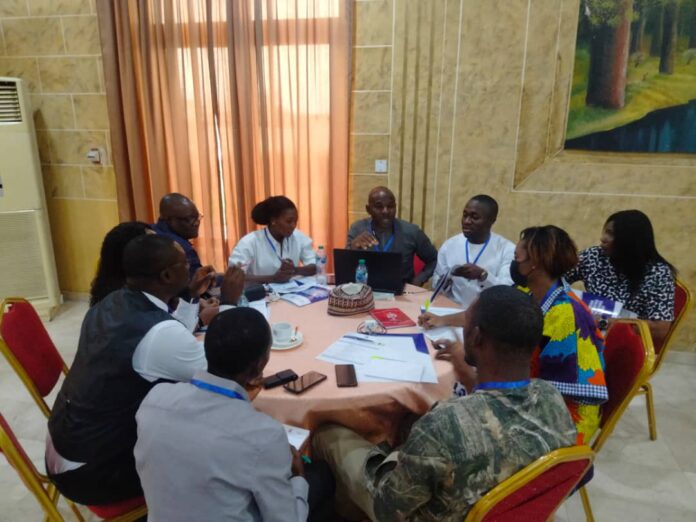By Michael Oche
To improve the quality of reportage on labour migration, the International Labour Organisation (ILO) has held a two-days workshop for journalists and Civil Society Organizations (CSOs) on reporting labour migration using ILO’s media toolkit in Abuja.
The training is part of the ILO FairWay project being supported by the Swiss Development Cooperation (SDC), which seeks to contribute to improved labour migration conditions from Africa to the Arab States.
Participants at the workshop were trained on usage of the ILO Media toolkit. The toolkit emphasised the need for media practitioners to use the right terminologies and avoid unhelpful sensationalism when writing reports on labour migration.
The toolkit has an accompanying media-friendly glossary on migration and provides concrete tips for improving media story ideas to promote production of quality reporting on forced labour and fair recruitment issues.
Nigerian Pilot reports that the ILO office in Nigeria started the adaptation of the toolkit in 2020 and facilitated a presentation of the draft document to integrate stakeholders’ feedback.
Speaking during the workshop, one of the facilitators, Tunde Salman said media practitioners and CSOs have critical roles to play in projecting labour migrants.
According to him, the media has a role in shining the light on abusive labour migration practices.
He said one of the identified skill gaps that the ILO training for media practitioners under the FAIRWAY project has breached is that journalists now see the need to report labour migration from the human rights perspective.
He also said through the trainings, journalists and CSOs have shown tremendous improvement in using the right terminologies in their reports.
Ms. Vanessa Phala, Director of the ILO Abuja Country Office, in her goodwill message, acknowledged the contribution of the media and civil society organisations in improving the entire labour migration governance space at country level.
Mrs Phala who was represented by Austin Erameh, National Project Coordinator of the FAIRWAY programme in Nigeria, also noted the contribution of the media in raising awareness especially in areas that affect bilateral labour agreements, policy, practice and recruitment of migrant workers for international labour markets.
Additionally, the ILO director of the Abuja office explained that what the ILO is doing within the framework of the FairWay programme is basically to ensure that the media, particularly journalists that work on forced labour issues are adequately capacitated to improve their skills when they go out to conduct reports that are focused on labour migration generally, but fair recruitment and forced labour particularly.







